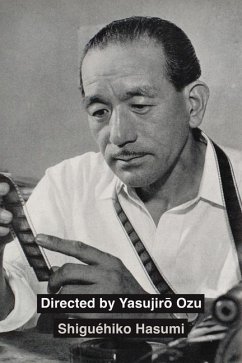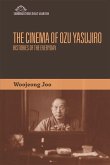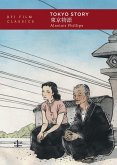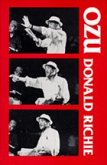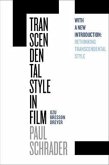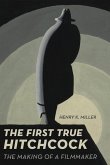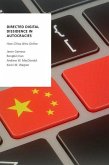"Shiguéhiko Hasumi is, quite simply, the greatest film critic in the world. We are finally able to savor his magisterial classic on Ozu, in a superb English translation. Subtle, provocative, forensic, philosophical: this is a film book for all time."--Adrian Martin, author of Mysteries of Cinema: Reflections on Film Theory, History and Culture 1982-2016 "Directed by Yasujirō Ozu is the most important book in my life. When I first encountered it in my early twenties, it taught me how difficult the simple undertaking of seeing a film actually is--and how pleasurable it can be as a result. This book thoroughly changed my way of looking at films, and also formed my filmmaking practice. The same can happen for readers today, who will come to realize that they had not really seen Ozu's films--or cinema itself, for that matter. I cannot help thinking that Ozu made the kinds of films he did just so that such a book would be written, believing that one day audiences would attempt to really see his films. What else could have inspired his unique approach? I know of no other film reading experience as devastating and alluring as this one."--Ryusuke Hamaguchi, Academy Award-nominated director of Drive My Car "A definitive classic by a master in the field."--Paul Schrader, Academy Award-nominated screenwriter of Taxi Driver and author of Transcendental Style in Film: Ozu, Bresson, Dreyer "Directed by Yasujirō Ozu is an original and essential contribution to the already-extensive bibliography about the great Japanese master. Hasumi intelligently challenges many of the conventional interpretations of Ozu's work with his unusual critical insight. Quite a discovery."--Víctor Erice, director of Close Your Eyes "This is much more than a monograph for erudite cinephiles: it is a book of combat and adventure, a joyous exercise in free-spiritedness. Its ambitious prose, audacious thought, and rigorous argumentation produce a cascade of meanings that speak to the central stakes of a book of this kind (a reflection on the work of a major filmmaker) while at the same time pulverizing the limits of the genre. Reading it will bring joys you would scarcely expect from a film book, whether or not you are a fan of Japanese cinema."--Jean-Michel Frodon, former editor in chief of Cahiers du cinéma "Shiguéhiko Hasumi, the most influential film critic in Japan since the 1980s, single-handedly resurrected the status of Ozu with the publication of this book. There is no Japanese film scholar who is not inspired by Hasumi's critical method. Paying scrupulous attention to what is visible on the screen, no matter how banal the appearance, Hasumi reveals how conscious Ozu was of the capabilities and limits of cinema as a medium as well as to the history of filmmaking. Ryan Cook's nuanced translation makes Hasumi's prose accessible to both scholars and aficionados of cinema."--Daisuke Miyao, author of Japonisme and the Birth of Cinema "My favorite critical study of Ozu, for its clarifying critique of the exoticism we invariably bring to this great filmmaker's work. Hasumi offers an exciting introduction to fresh paths that film criticism can take."--Jonathan Rosenbaum, author of In Dreams Begin Responsibilities: A Jonathan Rosenbaum Reader "This book completely changes our view of Ozu. Hasumi's analysis counters the tendency to exoticize Japan, unveiling the cruel ambiguity of Ozu's images through the closest of reading, the finest of description. Essential."--Bernard Eisenschitz, author of Fritz Lang au travail "Hasumi has long been a seismic force in film theory and history. Directed by Yasujirō Ozu shows us Ozu's distinctive cinematic idiom through an equally distinctive engagement with 'Ozu' as cinema itself. Ryan Cook's elegant translation brings this formidable oeuvre fully into English for the first time."--Anne McKnight, author of Nakagami, Japan: Buraku and the Writing of Ethnicity "Directed by Yasujirō Ozu brings Hasumi's decades-old paradigm shift in seeing Ozu to English-speaking readers in full form for the first time. Its welcome shock waves are channeled by Ryan Cook's supple yet grounded language, which not only renders the text accessible but reignites its essential provocations in a dazzling new idiom. A call to cinephile attention."--Earl Jackson, Associate Professor Emeritus, University of California, Santa Cruz "Hasumi's book is as idiosyncratic as it is influential, having inspired an entire generation of Japanese critics, scholars, and film directors. This highly anticipated--even courageous--translation provides a new entry point for the experience of Ozu's cinema."--Markus Nornes, author of Brushed in Light: Calligraphy in East Asian Cinema
Hinweis: Dieser Artikel kann nur an eine deutsche Lieferadresse ausgeliefert werden.
Hinweis: Dieser Artikel kann nur an eine deutsche Lieferadresse ausgeliefert werden.

